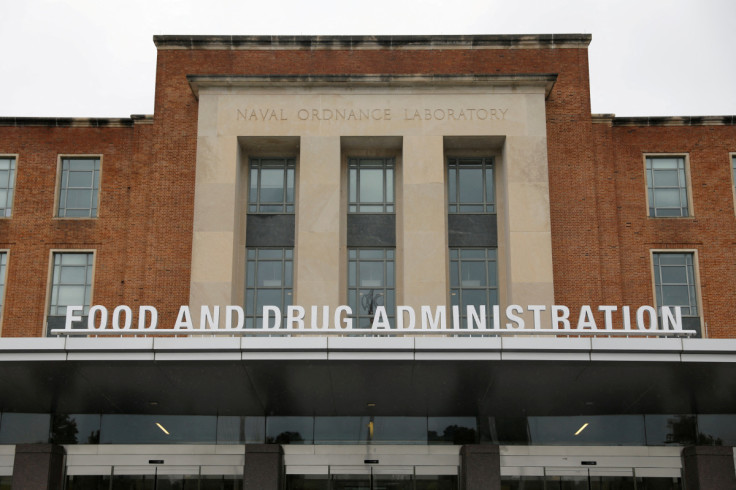Diabetics at Risk: FDA Issues Highest-Level Recall on 2M Dexcom Devices Over 'Deadly Fault'
FDA orders urgent recall of over two million Dexcom glucose monitors after discovering critical safety flaw that could threaten diabetic patients' health

The US Food and Drug Administration (FDA) has issued its highest-level recall on more than two million Dexcom Continuous Glucose Monitoring (CGM) devices, warning diabetic patients and healthcare providers of a critical safety fault that could pose life-threatening risks.
Dexcom, a leading manufacturer of CGM devices widely used by people with diabetes to monitor blood sugar levels in real-time, has been forced to recall specific models of its G6 CGM system. The FDA's Class I recall designation signals a potential for serious injury or death associated with the fault.
According to the recall notice issued this week, the affected devices may deliver incorrect blood glucose readings due to a software glitch or hardware defect.
These erroneous readings can mislead patients and clinicians, resulting in inappropriate insulin dosing, which could cause dangerously low blood sugar (hypoglycaemia) or high blood sugar (hyperglycaemia).
Millions Potentially Impacted
The recall affects an estimated 2,230,770 Dexcom devices distributed across the United States, including units currently in use by patients. Dexcom has advised patients to immediately stop using the faulty devices and contact their healthcare providers to discuss alternative monitoring options and obtain replacements.
The company has committed to working closely with the FDA to provide corrective measures, including software updates and replacement devices where necessary. However, with millions of users potentially affected, the recall represents one of the largest safety alerts in the diabetes device industry in recent years.
Risks and Symptoms to Watch For
Hypoglycaemia, or dangerously low blood sugar, can lead to symptoms such as dizziness, confusion, sweating, and in severe cases, loss of consciousness or seizures. Conversely, hyperglycaemia, or high blood sugar, can cause increased thirst, fatigue, and long-term complications if not managed effectively.
Patients using the recalled Dexcom devices are urged to be vigilant for any unusual glucose readings and symptoms. The FDA recommends that patients maintain alternative blood glucose monitoring methods, such as finger-prick tests, until they receive a verified replacement or software patch.
Expert Advice and Patient Safety
Continuous glucose monitors (CGMs) have revolutionised diabetes management by providing real-time blood sugar monitoring and reducing the need for frequent finger-prick tests.
However, experts warn that any device malfunction can pose serious health risks. Patients affected by the Dexcom recall are strongly advised to follow official guidance carefully, consult their healthcare providers promptly, and remain vigilant for symptoms that could indicate inaccurate glucose readings.
The US Food and Drug Administration (FDA) has established a dedicated helpline and online resources to help patients and healthcare professionals identify recalled devices and manage associated risks. The agency also encourages reporting of any adverse events through its MedWatch program to ensure ongoing safety monitoring.
Broader Implications
This recall underscores the increasing reliance on advanced medical technologies in chronic disease management, particularly for diabetes. Continuous glucose monitors (CGMs) like the Dexcom G6 have transformed how patients and clinicians track blood sugar levels, enabling more precise and timely treatment decisions.
However, as these devices become more sophisticated—often integrating with automated insulin pumps and smartphone apps—the stakes for accuracy and reliability have never been higher.
Dexcom's rapid response to identify and recall affected devices demonstrates the company's commitment to patient safety. However, the incident raises broader questions about the robustness of medical device testing, post-market surveillance, and the speed at which manufacturers and regulators can address emerging risks.
For patients, healthcare providers, and policymakers, the recall serves as a reminder of the critical need for ongoing vigilance, transparent communication, and continued innovation to ensure that life-saving technologies do not inadvertently endanger those who depend on them.
What Diabetic Patients Should Do Now:
- Immediately check if your Dexcom device is part of the recall using the FDA's online database.
- Stop using the recalled device and switch to traditional blood glucose monitoring until advised otherwise.
- Contact your diabetes care provider for guidance and replacement options.
- Report any adverse effects or unusual symptoms to the FDA MedWatch program.
© Copyright IBTimes 2025. All rights reserved.





















